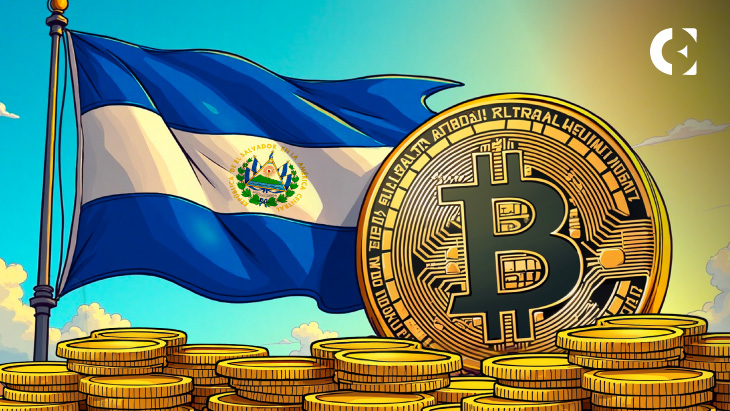- El Salvador bought 1 BTC despite agreeing to curb purchases under a $1.4B IMF deal.
- The government considers Bitcoin a key long-term asset strategy.
- President Bukele’s crypto stance continues to clash with traditional financial institutions.
El Salvador appears to be doubling down on its Bitcoin ambitions, despite conditions tied to a recent $1.4 billion loan from the International Monetary Fund (IMF) that urged the country to scale back crypto involvement.
According to reports, El Salvador’s Bitcoin Office confirmed the quiet purchase of one more BTC, adding to its Strategic Bitcoin Reserve. The move comes just months after the IMF finalized a deal with President Nayib Bukele’s administration, raising eyebrows over whether the country is complying just on paper while continuing to accumulate Bitcoin behind the scenes.
El Salvador’s Bitcoin Policy: Still Active Despite Global Pressure
Speaking at Web Summit in Rio, El Salvador’s Economy Minister Maria Luisa Hayem clarified the government’s stance, which came under heavy criticism for succumbing to IMF pressure, “There’s a commitment of President Bukele to keep accumulating assets.”
The comment directly addressed ongoing speculation about whether El Salvador had hit pause on Bitcoin buys after its controversial embrace of the asset as legal tender in 2021. Hayem, however, assured that Bitcoin remains a key focus for both the government and private sector, framing it as a strategic asset rather than a speculative bet.
Related: El Salvador Scales Back Bitcoin Adoption Under IMF Loan Terms
What the IMF Deal Actually Requires
The IMF’s agreement with El Salvador was designed to stabilize its fiscal health while minimizing risk from Bitcoin exposure. Key provisions included:
- Voluntary merchant acceptance of Bitcoin, rather than mandated use.
- Restricted public-sector participation in Bitcoin-related activities.
- Reduced reliance on the Chivo Wallet.
- All taxes to be paid in U.S. dollars, effectively limiting Bitcoin’s legal tender status.
These terms were crafted to reassure global bond markets and demonstrate that Bukele’s administration was willing to comply with conventional financial norms.
A Dual Strategy: Surface Compliance, Strategic Accumulation?
Despite IMF restrictions, the Bitcoin Office has posted regular social media updates confirming ongoing BTC purchases. To critics, this signals deliberate defiance; to supporters, it’s proof of policy consistency under Bukele.
Related: After Big April Gains, Bitcoin Heads Into a Volatile May
The latest actions suggest that El Salvador may be walking a fine line; honoring the letter of its IMF agreement while still building out its crypto reserves.
Disclaimer: The information presented in this article is for informational and educational purposes only. The article does not constitute financial advice or advice of any kind. Coin Edition is not responsible for any losses incurred as a result of the utilization of content, products, or services mentioned. Readers are advised to exercise caution before taking any action related to the company.







